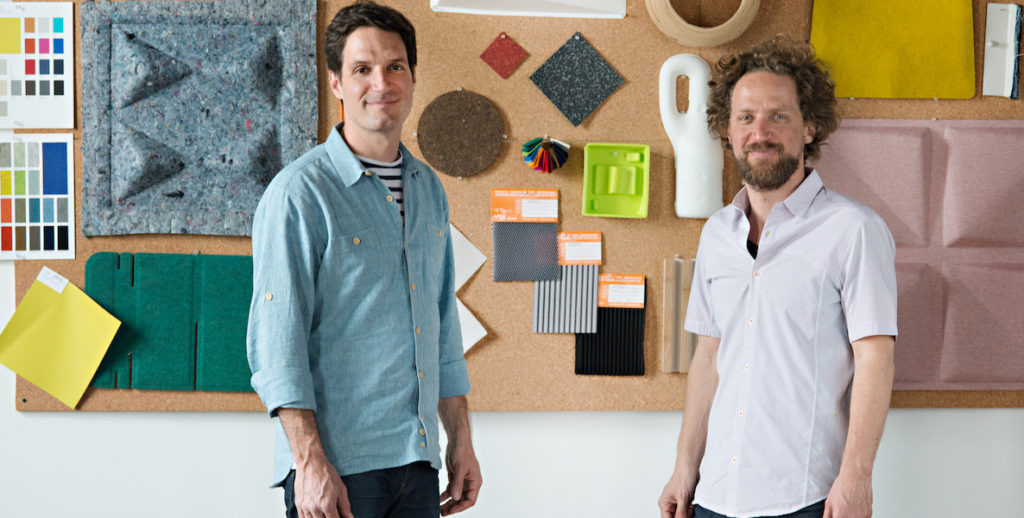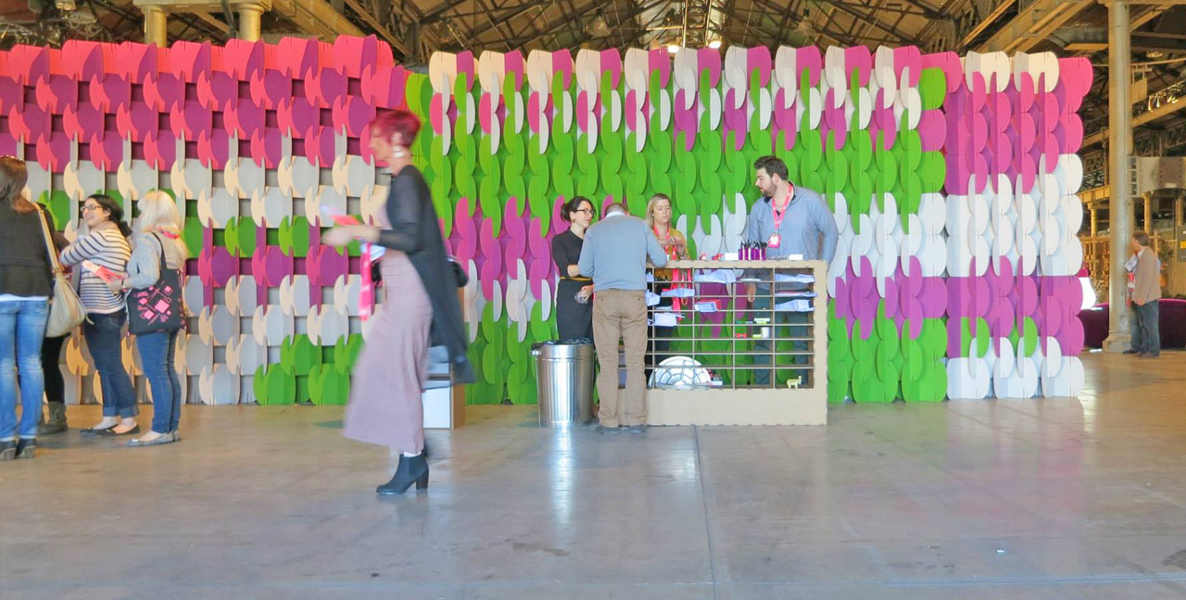There is no elevator at the old North Philadelphia brick building where MIO Culture––the design and consultancy company––is located, so its visitors and employees are left to hike up wooden, creaking steps, for what seems like much longer than it actually is. But there is Jamie Salm, MIO’s co-founder and creative director, bounding up the stairs, as if racing to the top, unfazed by the climb. He stops only once to look back and deliver a reassuring message: “Almost there,” he says. Then he’s off again.
There is a certain youthful exuberance about the 39-year-old man––he speaks with energy and passion and admits he cannot sit still. At MIO Culture’s studio, Salm shows me the hula hoops he keeps on the wall, the basketball on the shelf, then the disassembled seesaw lying on the ground. He makes an effort to step away from the desk every so often to “refresh” by simply playing with one of these objects, then he comes back with a new mind, ready to tackle something else.
MIO Culture’s latest collection, which launched two weeks ago, is designed to celebrate these “refresh” moments, which Salm thinks are often overlooked. The collection––which Salm describes as “furniture for creative people and places”––includes a seesaw that spins (the disassembled one on the floor is a prototype for the finished product), a two-person hammock-like swing and a stool that swivels.
Salm looks around at the open-floor plan of MIO Culture’s studio, where his co-workers are encouraged to pick up that basketball or to take a moment to talk with one another whilst riding a seesaw. Here, moments of play encourage hours of creative and collaborative work.

“This is what the work space is going to look like,” he says. “Nobody wants to work in an office. Nobody wants to be confined to a cubicle all day long.”
Salm launched MIO Culture straight out of University of the Arts in 2003 with his brother, Isaac, and even then they were thinking differently––this new line of “furniture for creative people and places” is only an addition to a long line of products that have added something new to the design game. The company emphasizes sustainability, as The Citizen wrote about in 2016, but they do so differently; they aim, as Salm says, to “make sustainability sexy.”
“There are companies that make cool recycled products, but they aren’t sexy,” says Salm. “You sort of buy them because you want to do that right thing. There’s that eco-guilt, that altruism kicking in. We don’t want that.”
“There are companies that make cool recycled products, but they aren’t sexy,” says Salm. “You sort of buy them because you want to do that right thing. There’s that eco-guilt, that altruism kicking in. We don’t want that.”
What Salm wants is for people to “be so excited about a product, that they lose their mind over it.” Only then does he tell them the rest of the story: How every product––the room dividers, the acoustic tiles, the wall and ceiling tiles, the furniture and the lighting fixtures––are made using recycled materials. How all the products are made domestically, either in Pennsylvania or Michigan; and how MIO Culture was one of the first B-Corporations, a program launched in 2006 by And1’s Jay Coen-Gilbert to encourage companies to think about people, planets and profits.
To Salm, that’s all just a given––“sustainability just makes sense,” Salm says. “It’s 2018. The answer to whether or not something should be made sustainably is yes, of course. That shouldn’t even be a question.”
But convince them they did. MIO Culture products are now sold worldwide; and businesses like 365 by Whole Foods, FedEx, Target and Anthropologie consult with the other side of the Salms’ company, Culture Lab, on how to be more sustainable. Now, here they are asking businesses to put seesaws and hammocks at the office.
“I know that some people may think our new collection is fringey,” Salm says. It’s difficult to monetize. Why would a business spend $3,500 on a seesaw, when they could buy desks or chairs. But what some see as “fringey,” he sees as important.
His answer is the natural human desire to take a break and play; enjoy life, despite work, in the most general of terms. “That’s what makes us who we are,” says Salm. We all need a moment, whether it be getting a coffee, standing at the water cooler, or scrolling through Instagram in the middle of the work day––“it’s natural,” Salm says. “People just don’t play.”
“But play,” he adds, “makes us human. It fuels our creativity, and, most importantly, it makes us think differently.”


